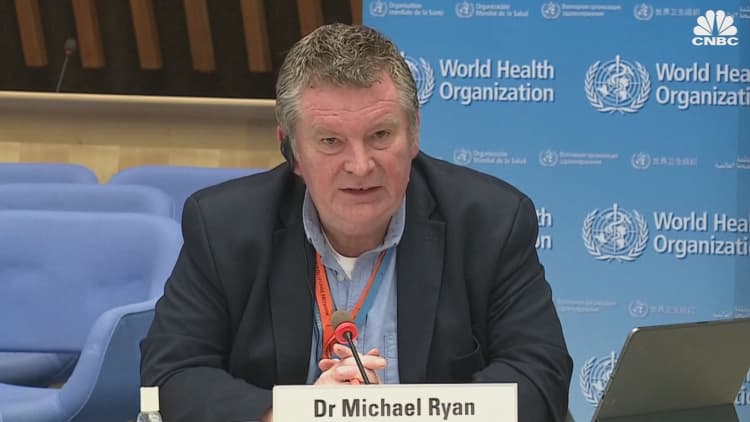A fire that broke out in an intensive care ward in a hospital in St. Petersburg in Russia has killed five people with Covid-19, according to Russian media reports.
The fire may have been caused by one of the ventilation machines short-circuiting, Russian news agency Tass reported Tuesday, citing a source in the emergency services.
"Five patients put on artificial ventilation machines were killed in the fire," the source said.
The press service of the Ministry of Emergency Situations informed Tass that the fire at St. George Hospital in Russia's second-largest city had been contained and that there had been casualties, but did not provide the exact number of people killed.
"150 people have been evacuated," the press service told the state news agency.
Tass later reported Tuesday that Russia will stop using the 'Aventa-M' model of ventilator until an investigation into the hospital fire is complete.
The same model was reportedly sent to the U.S. as part of a consignment of equipment from Russia to help it combat its coronavirus outbreak. CNBC has asked the U.S. State Department whether the Aventa-M model of ventilator is currently being used in U.S. hospitals and is awaiting comment.
The news agency noted that since mid-March, St. George Hospital in St. Petersburg has been re-equipped to treat patients diagnosed with Covid-19.
News agency RIA Novosti also reported the fire and deaths, citing a spokesman for the emergency services. It said the cause of the incident could be a malfunction of electrical equipment, including a ventilator.
The English-language newspaper, The Moscow Times, cited news agency Interfax quoting a source saying the fire had been caused by an "overload" with ventilators being "pushed to their limit."
The news comes as Russia's coronavirus outbreak increases rapidly, putting the country's health-care system under pressure.
Russia now has the second highest number of coronavirus cases in the world after the U.S., with 232,243 confirmed cases, according to Johns Hopkins University data.
The Moscow Times said Russia's Investigative Committee, which examines serious crimes, had said that it had launched a probe into the incident. CNBC has asked the Russian authorities to confirm the incident and provide more detail.
News agencies reported that the latest fire comes after similar incidents elsewhere. A fire at a Moscow hospital treating coronavirus patients last week killed one and forced hundreds of others to evacuate, the Moscow Times said. Investigators are also probing two recent fires at residence homes in Moscow, both of which caused fatalities.
Question marks over the standards and safety of equipment used to treat patients that are seriously ill with Covid-19 have come to the fore in recent months, with some U.K. doctors reporting recently that ventilators that were bought in haste from China to treat patients were not safe to use.
Russia itself has sent personnel and medical equipment to both the U.S., Italy and Serbia in what it said was a gesture of goodwill and solidarity as the world tries to combat the pandemic. There were some reports in Italy that the equipment was unusable, however, an accusation that was rejected by Russia.



